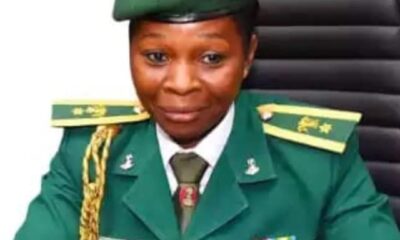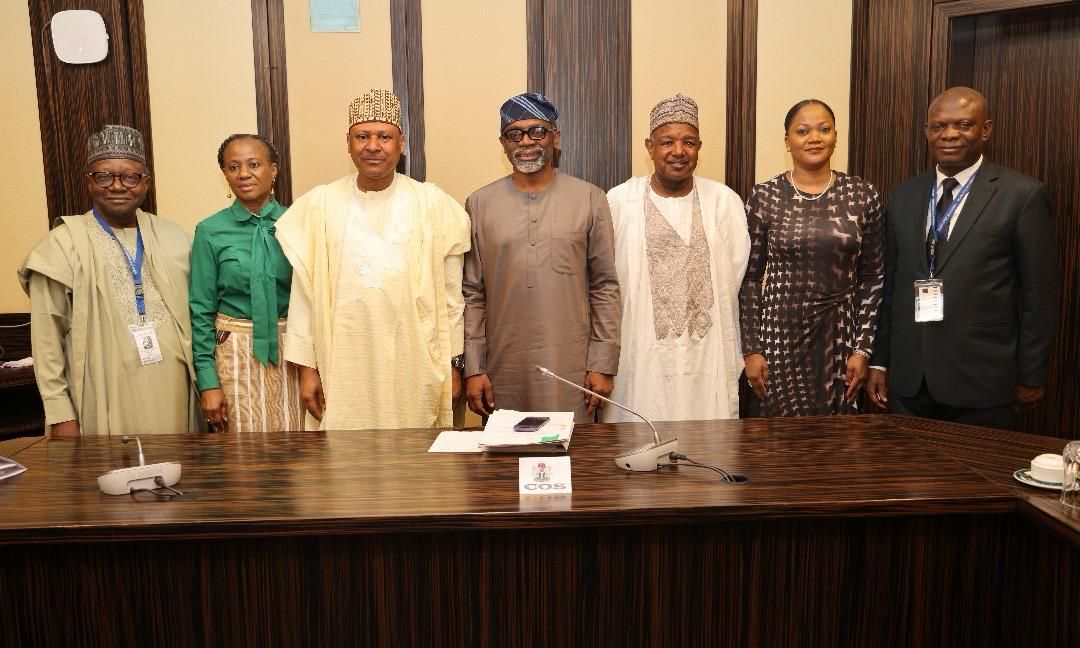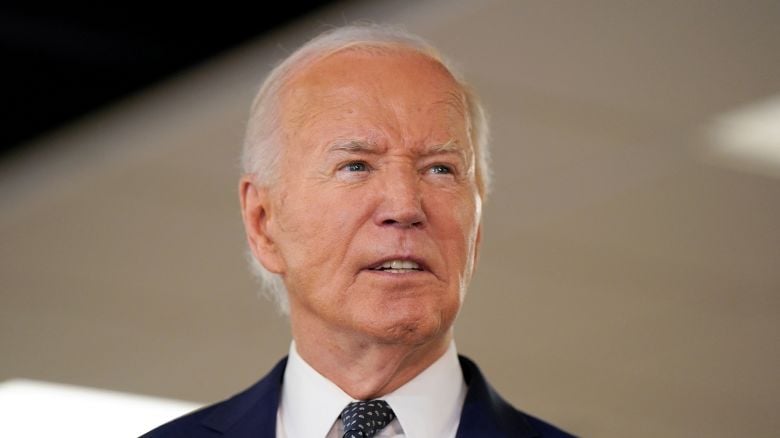Politics
How Imo and 28 other states spent N2tn on travels, others — Report State govts borrowed N533bn, generated N1.92tn IGR, serviced debt with N658bn
Published
4 months agoon
By
Ekwutos BlogHow Imo and 28 other states spent N2tn on travels, others — Report
State govts borrowed N533bn, generated N1.92tn IGR, serviced debt with N658bn
Ekwutosblog has gathered that a total of 29 state governors spent N1.994tn on recurrent expenditures, including refreshments, sitting allowances, travelling, and utilities in the first nine months of 2024, findings by The PUNCH have shown.
It was also gathered that the states obtained a N533.29bn loan, while it spent N658.93bn to service its debts owed to local, foreign, and multilateral creditors.
However, these states fell short in their revenue-generating targets, collecting a total sum of N1.92tn as internally generated revenue but fell short of the revenue target of N2.868tn, recording a deficit of N948.28bn.
The recurrent data utilised in this report did not include personnel costs.
An analysis of the fiscal performance of each state, utilizing data from the Q1 to Q3 budget performance reports obtained from each state’s website, revealed a pressing need for stringent measures to prioritise fiscal discipline, especially amidst growing calls to reduce the costs of governance.
This comes despite a 40 per cent increase in the state’s statutory allocations from the Federation Account.
For the first three quarters of the year, our correspondent examined budget implementation data from twenty-nine states; data for six states was not available.
Borno, Gombe, Kaduna, Kano, Kwara, Sokoto, and Ogun states were the ones without the latest data from January to September 2024.
Since the commencement of the current administration, state governments have enjoyed improved monthly allocation mainly due to the elimination of fuel subsidies and the unification of the foreign exchange market.
A breakdown showed that the 29-state government spent N1.994tn on its recurrent expenditure, which included refreshments for guests, sitting allowances to government officials, local and foreign travel expenses, and utility bills.
The general utilities include electricity, internet, telephone charges, water rates, and sewerage charges, among others.
Lagos, Plateau, and Delta States spent the highest on their operating expenses, incurring a cost of N375.19bn, N144.87bn, and N121.54bn, respectively. This was followed by Ondo and Bauchi spending N107.34bn and N99.31bn.
Niger State, under the leadership of Governor Mohammed Umar Bago, was the highest borrower within the review period, obtaining loans worth N79.09bn. Katsina followed with a loan of N72.89bn. Oyo State also got a loan of N62.48bn.
In terms of revenue, Lagos State collected the highest of N912.17bn, followed by Rivers State with a collection of N269.18bn. Third on the list was Delta (N97.02bn).
A state-by-state analysis revealed that Abia State, led by Governor Alex Otti, spent N17.91bn on operating expenses and generated N22.15bn in revenue, falling short of the N32.14bn revenue target. Additionally, the state borrowed N3.901bn and allocated N10.91bn for debt servicing.
Adamawa State spent N41.45bn on recurrent expenditure, while it earned N9.16bn income out of its revenue of N22.24bn. This state borrowed N10bn and paid N22.68bn to service its debts.
Akwa-Ibom State recurrent spending reached N85.45bn in nine months, N43.98bn more than its generated revenue of N41.47bn in nine months. The state paid N34.47bn as debt service but didn’t borrow.
Anambra State generated more revenue (N28.296bn) than its recurrent spending of N12.70bn. It spent N4.56bn on debt service and didn’t record any borrowing.
The Bauchi government spent N99.31bn on its operating expenses. This state only got N15.92bn out of its budgeted target of N37.03bn but borrowed N33.64bn and paid N27.54bn as debt service.
Bayelsa state got N57.85bn IGR more than its revenue target of N23.87bn. It spent N75.23bn on its operating costs and spent N30.54bn on its debt service.
Governor Hyacinth Alia of Benue state approved the spending of N29.45bn for operating expenses while it collected N8.71bn as revenue out of an N23.91bn target. This state didn’t borrow but spent N5.48bn to service previous loans collected.
Similarly, Cross Rivers spent N55.73bn on recurring expenses, collected N32.42bn IGR, borrowed N20.67bn from its creditors and spent N19.99bn on debt service.
Delta state recurrent expenditure reached N121.54bn in nine months while it earned N97.02bn as revenue out of the N110.3bn target. The oil-rich state serviced its debt with N55.9bn and didn’t obtain any loan.
Also, Ebonyi State spent N37.73bn on its recurrent expenses but earned N15.67bn as revenue. The state borrowed N15.65bn and spent N8.46bn on debt service.
Delta state recurrent expenditure reached N121.54bn in nine months while it earned N97.02bn as revenue out of the N110.3bn target. The oil-rich state serviced its debt with N55.9bn and didn’t obtain any loan.
Also, Ebonyi State spent N37.73bn on its recurrent expenses but earned N15.67bn as revenue. The state borrowed N15.65bn and spent N8.46bn on debt service.
Edo State spent N75.78bn on recurrent expenditure but generated N52.68bn revenue. The state borrowed N12.84bn and spent N27.5bn on its debt service commitments.
Similarly, Ekiti State recurrent spending was N74.73bn, generated N23.16bn revenue, borrowed N11.75bn and spent N12.93bn to service its debts.
Enugu State spent N10.88bn on its operating expenses but got N39.98bn in revenue. This state borrowed N1.39bn and spent N6.93bn on its debt service.
Imo State under Governor Hope Uzodinma, spent N42.75bn on its operating expenses but got N15.24bn as revenue. This state spent N15.94bn to service its debts but didn’t obtain any loan.
While Jigawa incurred N35.69bn as operating expenses, it collected N18.41bn as revenue out of its target of N50.65bn borrowed N744.75m, and N2.17bn on debt service.
You may like


OPERATION UDO GA CHI – ZERO KIDNAPPING IN ANAMBRA: CP ORUTUGU SETS UP A MONITORING TEAM TO ENSURE OPERATIVES ARE CIVIL AND COMPLIES WITH THE OPERATIONAL ORDER; ALSO THANKS THE STATE GOVERNMENT AND STAKEHOLDERS FOR THEIR SUPPORT AND APPRECIATES THE SACRIFICES OF POLICE AND OTHER SECURITY AGENCIES


Benue killings: Three suspected herdsmen arrested


Lt Col Anele Onyechi Appolonia Becomes First Female Army Spokesperson


IDF eliminates terrorist behind January West Bank shooting


PRESIDENT TINUBU INAUGURATES NATIONAL CENSUS COMMITTEE, GIVES THREE-WEEK DEADLINE FOR REPORT


PDP governor of Akwa Ibom says Tinubu will complete 8 years as president
Politics
PRESIDENT TINUBU INAUGURATES NATIONAL CENSUS COMMITTEE, GIVES THREE-WEEK DEADLINE FOR REPORT
Published
2 hours agoon
April 16, 2025By
Ekwutos Blog
STATEHOUSE PRESS RELEASE
PRESIDENT TINUBU INAUGURATES NATIONAL CENSUS COMMITTEE, GIVES THREE-WEEK DEADLINE FOR REPORT
President Bola Ahmed Tinubu inaugurated a high-level committee on the forthcoming national population and housing census on Wednesday. The committee will submit an interim report within three weeks.
The President said the census is crucial for national development, accurate planning, and effective decision-making in healthcare, education, security, and economic planning.
Nigeria’s last census was in 2006, nearly two decades ago. It recorded a population of 140,431,790, with 71,345,488 males and 69,086,302 females.
President Tinubu stressed the pivotal role of a technology-driven process in ensuring credible and verifiable results and the need for collaboration among all relevant agencies and stakeholders.
Underscoring the critical financing factor in the exercise, the President enjoined the members to look at domestic and even international resources.
“Work with all relevant agencies, including the Ministry of Budget and Economic Planning. This ministry has to take charge of this because you cannot budget if you do not know how many we are.
“We expect you will touch on the technology area because the census must be technology-driven. Things have changed since the last time that we conducted this exercise. The enumeration has to be technology-driven with biometrics and digitalisation,” he said.
Chief of Staff Femi Gbajabiamila represented the President at the event held at the State House in Abuja,
The Minister of Budget and Economic Planning, Senator Atiku Bagudu, who chairs the Presidential Committee on Population and Housing Census, assured the President that the committee will deliver its report within the three-week deadline.
The minister recalled President Tinubu’s advice to ministers during their retreat in 2003, urging them to think creatively and work with the resources available, even under harsh economic conditions.
Bagudu noted that despite global economic challenges, Nigeria is making steady progress under President Tinubu’s leadership, citing improved foreign exchange stability and a positive growth trajectory.
He said the committee will recommend practical solutions, including strategies for mobilising domestic and international resources to fund the census.
The Minister of Information, Muhammed Idris, also a committee member, emphasised that accurate data is critical for planning across all sectors and that a credible census is the foundation for such data.
The National Population Commission (NPC) Chairman, Nasir Isa Kwarra, who will also serve as the committee Secretary, said the commission has already begun preparations for the national population and housing census in collaboration with the Ministry of Budget and Economic Planning and other relevant stakeholders.
According to him, the focus has been on identifying key requirements and laying the groundwork necessary for the President to make an informed decision on the actual conduct of the census.
Kwarra assured Nigerians that the National Population Commission remains committed to ensuring a credible, technology-driven enumeration that will support effective national planning and development.
The eight-member committee also includes the Minister of Finance and Coordinating Minister of the Economy, the Chairman of the Federal Inland Revenue Service (FIRS), the Director General of the National Identity Management Commission (NIMC), the Principal Secretary to the President, and the Senior Special Assistant to the President on Administration and Operations (Office of the Chief of Staff).
Bayo Onanuga
Special Adviser to the President
(Information & Strategy)
April 16, 2025
Politics
PDP governor of Akwa Ibom says Tinubu will complete 8 years as president
Published
3 hours agoon
April 16, 2025By
Ekwutos Blog
The governor of Akwa Ibom State, Umo Eno has said that President Bola Tinubu will complete his second tenure in office
Eno, a member of the opposition party, the Peoples Democratic Party (PDP) said the president will complete eight years (two tenures of four years each) as president.
The governor made this disclosure at the flag-off of the Akwa Ibom section of the Lagos-Calabar coastal highway project on Tuesday, April 15.
Politics
‘So much damage’ – Biden blasts Trump in first speech after White House exit
Published
3 hours agoon
April 16, 2025By
Ekwutos Blog
The immediate former United States of America president, Joe Biden, in his first major speech since leaving the White House, tackled his predecessor, Donald Trump’s administration reforms at Social Security, which pushed 7000 employees out the door.
Biden disclosed this on Tuesday in his speech at a conference of disability advocates in Chicago.
He said that the Trump administration has done so much destruction in the less than 100 days of his second return to the White House.
“In fewer than 100 days, this administration has done so much damage and so much destruction—it’s kind of breathtaking it could happen that soon,” he said.
“They’ve taken a hatchet to the Social Security Administration, pushing 7,000 employees out the door,” the former president added, referring to the national agency that pays out retirement and disability benefits.
He further highlighted staff reductions at the agency that Trump and his billionaire aide Elon Musk have pushed as part of their self-declared “Department of Government Efficiency,” saying the Social Security website “is crashing” and hindering retirees from getting their benefits.
He continued speaking, Many Americans “literally count on social security to buy food, just to get by.” “For many of these beneficiaries, it’s their only income. If it were cut or taken away, it would be devastating, devastating for millions of people.”
Meanwhile, President Trump, in a jab at Biden, posted a short video on social media of one of his rambling anecdotes without comment.

OPERATION UDO GA CHI – ZERO KIDNAPPING IN ANAMBRA: CP ORUTUGU SETS UP A MONITORING TEAM TO ENSURE OPERATIVES ARE CIVIL AND COMPLIES WITH THE OPERATIONAL ORDER; ALSO THANKS THE STATE GOVERNMENT AND STAKEHOLDERS FOR THEIR SUPPORT AND APPRECIATES THE SACRIFICES OF POLICE AND OTHER SECURITY AGENCIES

Benue killings: Three suspected herdsmen arrested

Lt Col Anele Onyechi Appolonia Becomes First Female Army Spokesperson
Trending

 Trending6 months ago
Trending6 months agoNYA demands release of ‘abducted’ Imo chairman, preaches good governance
- Business6 months ago
US court acquits Air Peace boss, slams Mayfield $4000 fine

 Politics6 months ago
Politics6 months agoMexico’s new president causes concern just weeks before the US elections
- Entertainment6 months ago
Bobrisky transferred from Immigration to FCID, spends night behind bars
- Entertainment6 months ago
Bobrisky falls ill in police custody, rushed to hospital

 Politics6 months ago
Politics6 months agoRussia bans imports of agro-products from Kazakhstan after refusal to join BRICS

 Politics6 months ago
Politics6 months agoPutin invites 20 world leaders
- Politics1 year ago
Nigerian Senate passes Bill seeking the establishment of the South East Development Commission.

